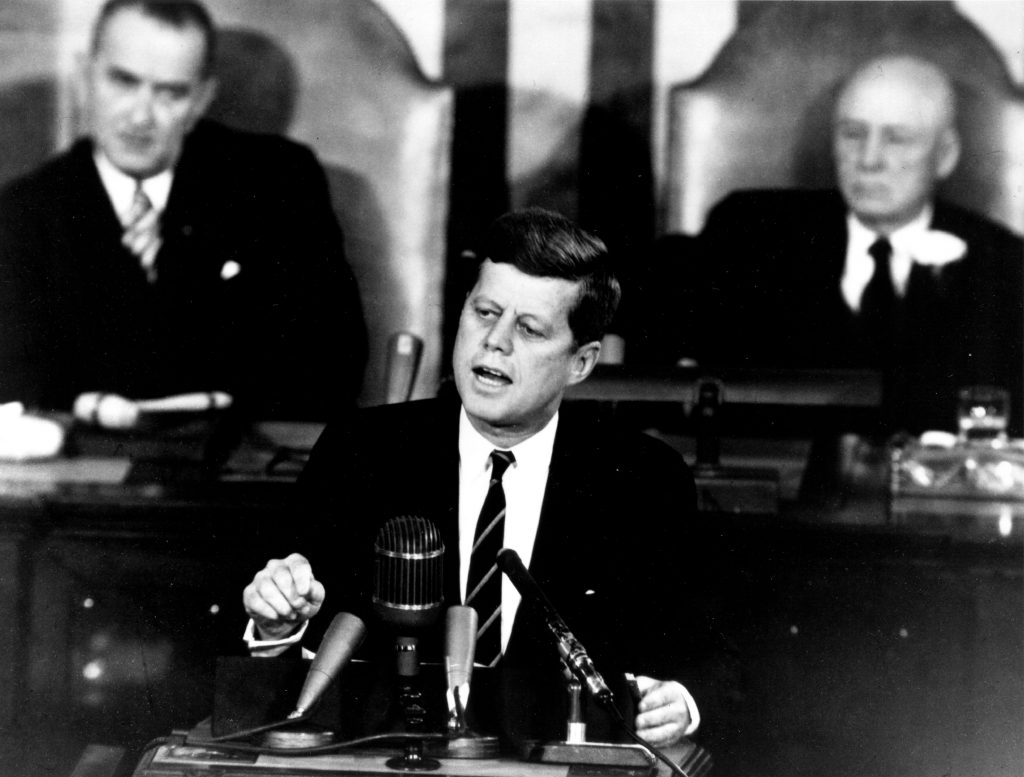Yesterday was the 50th anniversary of the assassination of President John F. Kennedy. While memorials were observed globally, my metro area of Dallas/Fort Worth was literally ground zero for this occasion. The city of Dallas has carried the burden of being ‘the city’ for the last 50 years, and city leaders have been so concerned about the stigma that there has never been a public observance of that Friday in November – not until this year, with a formal hour-long ceremony replete with civic leaders, service academy choir, and prominent clergy. However, the highlight for me was the remarks of presidential historian and author David McCullough, who read a series of excerpts from Kennedy’s best-known speeches. It is a must view, and my favorite passages were the following:
“But why, some say, the moon? Why choose this as our goal? We choose to go to the moon in this decade and to do the other things, not because they are easy, but because they are hard. Because that goal will serve to organize and measure the breadth of our energies and skills. Because that challenge is one we are willing to accept, one we are unwilling to postpone, and one which we intend to win.”
…because they are hard… in a sense, because grand challenges form a crucible in which skills are developed, frontiers stretched, and character revealed. 2013 is nearly over, and this year has presented some grand challenges in my personal and professional life – death of a parent, company reorg, and prepping our last daughter for college. And yet you can choose to look at challenges as bad luck or opportunities for growth, with cynicism or optimism.
“He was an optimist, and he said so. But there was no sidestepping reality in what he said, no resorting to stale old platitudes. He spoke to the point and with confidence…We sometimes chafe at the burden of our responsibilities, the complexity of our decisions, the agony of our choices. But there is no comfort or security in evasion, no solution in abdications, no relief in irresponsibility. The problems of the world cannot be possibly solved by skeptics or cynics, whose horizons are limited by the obvious realities. We need men (people) who can dream of things that never were, and ask ‘Why not?’ Those things we talk about today which seem unreal, where so many people doubt that they can be done. The fact of the matter is, that it is has been true throughout all our history that they will be done.”
The Kennedy mystique and his Camelot can inspire blind loyalty, or one can dwell on his mortal (moral) foibles, but I believe you take the good with the bad, and there is much in the narrative to enrich our lives. Life’s too short not to have higher aspirations, to seek work that matters, and to try to make a difference. And the words spoken so eloquently by Kennedy can ring true for us as well. So perhaps that is a sort of immortality, and we can once more turn to McCullough to hear the wisdom in his words: “He knew words matter. His words changed lives. His words changed history. Rarely has a commander in chief spoken with such a command of language. Much that he said applies now no less than a half-century ago, and will continue, let us hope, to be taken to heart far into the future.”
